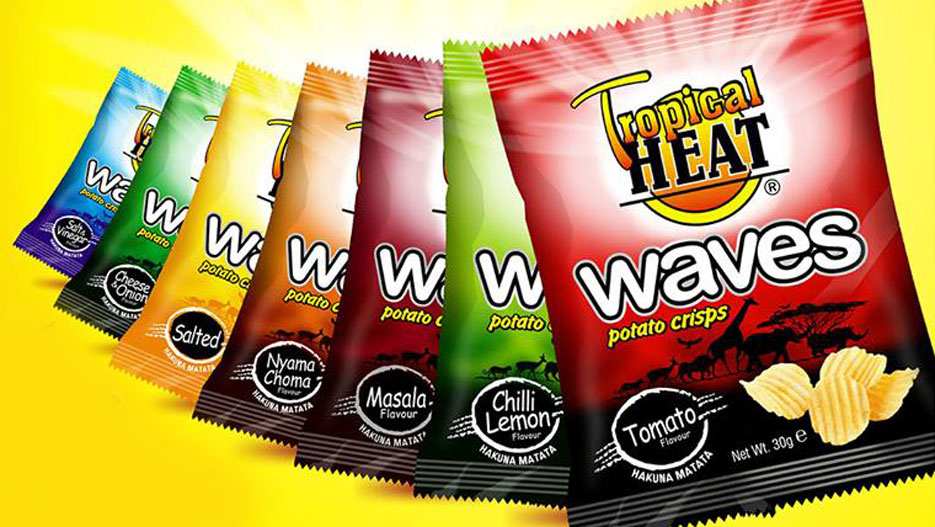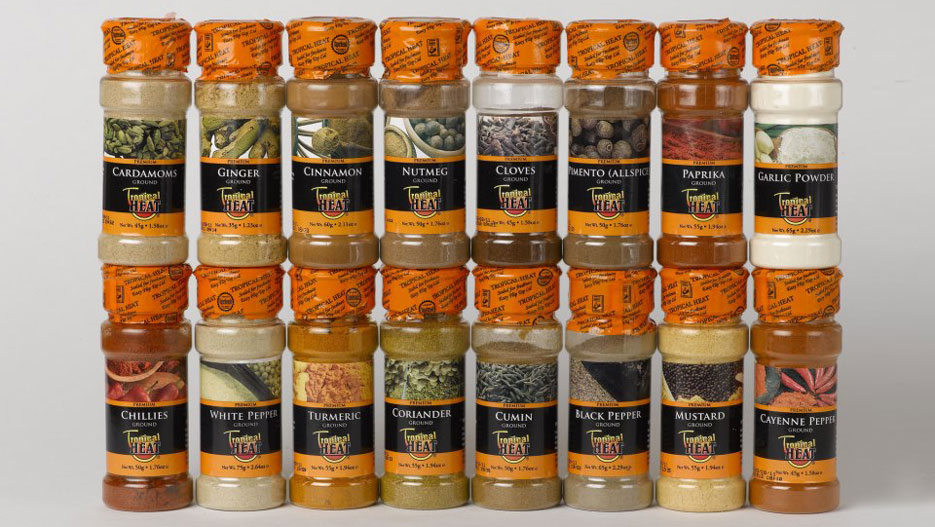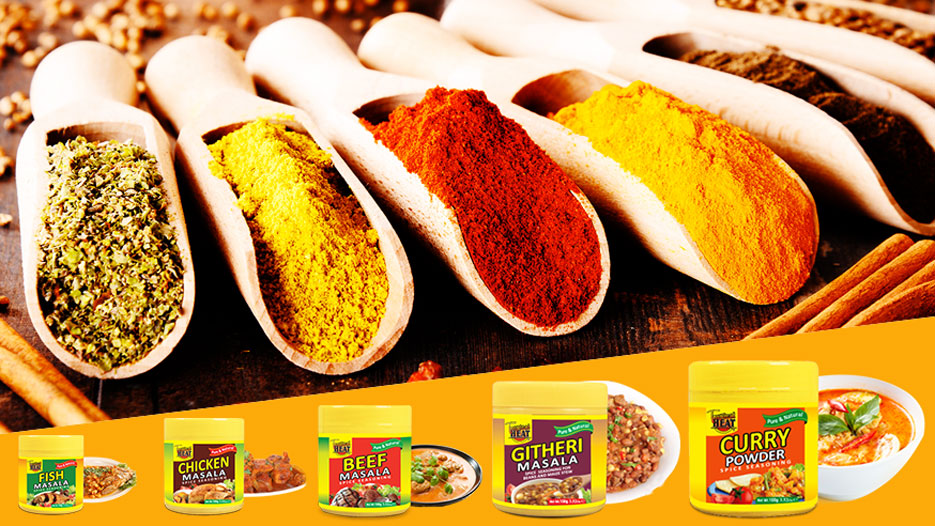Tropical Heat: Sawan Shah Discusses the Spices and Snacks Industry in Kenya
Sawan Shah, Director of Tropical Heat, talks about the food manufacturing industry in Kenya. He also gives an overview of Tropical Heat, one of the leading manufacturers of spices and snacks in East Africa.
Interview with Sawan Shah, Director of Tropical Heat
Could you give us your assessment of the food manufacturing sector in Kenya, and especially the spices and snacks segments?
This sector is experiencing steady growth. The snacks sector is dynamic. There is such a wide range of options available to consumers, and consumer choice is really growing. This can be seen on any supermarket shelf. As the number of middle class and middle income consumers increases across the country, more and more people are buying snacks. In the past, snacks were not considered a necessity, but now, they are considered an aspirational product. Spices are slightly less elastic and there is not as much growth to be seen. Food is a necessity. Everyone cooks every day, regardless of whether they have a high or low income. In terms of saturation, there is a lot of competition. Many companies are investing in this sector. It is an interesting space to be in and it keeps everyone sharp.
Tropical Heat was established in Thika Town as a cottage industry in 1973. Today, it is one of the leading manufacturers of spices and snacks in the East African region and the brand Tropical Heat is a household name in Kenya. Could you give us an overview of the company’s history and the products you offer?
In the snacks range, our traditional potato crisps are the most famous product. In spices, we have Tea Masala which is a spice for tea, and Pilau Masala which is used for rice. Both are extremely popular in this area.
The company was founded in 1973 as a cottage industry. It was just two people making snacks out of their kitchen at home. Over time, it started to grow as our reputation of quality grew. We started to invest heavily in infrastructure, machinery and acquired a factory. Our capacity grew tremendously. Over time, we have grown with the market. The demand for food is very high. It was simply a case of keeping the quality high while putting the capacity in place. We eventually started to produce both snacks and spices and expanded our range. We produce a wide range of snacks such as potato crisps, popcorn, nuts and extruded snacks. We also have a large selection of spices including pepper, ginger, masalas and more. Over time, we started to strengthen our export base as well. More recently, we have started exporting to the US and the UK. We are now in 14 countries. The next phase is to become a marketing and customer focused company. This means not just worrying about what we are going to make and hoping it sells, but knowing what the consumers want and really bringing that brand to the next level.
What are some of your most famous products?
In the snacks range, our traditional potato crisps are the most famous product. In spices, we have Tea Masala which is a spice for tea, and Pilau Masala which is used for rice. Both are extremely popular in this area. The popularity of these products is also growing around the world. We also have a product called Kenyan Chevda, which is an ethnic snack, with a unique taste profile – popular amongst Kenyan emigrants in over 14 countries across the world.

What are some of your company’s most significant successes?
Being in the Business Daily and KPMG Top 100 program for the last three years was a good success story for us. It was wonderful to be able to recognize our people and our staff for all of their hard work. This year, we migrated from Club 100 to 101. Breaking into the US market in 2014 and the UK market in 2004 were also very big successes for us because the regulations for food products to enter those countries are very strict. For our company to have all the quality processes in place and to meet those regulations with a quality product is a big sign of how far we have come. We have always been paranoid about quality. We were one of the first companies in our sector to be ISO22000 certified. That moment was a big milestone and it has paved the way for future growth and opportunities. We are very conscious of continuous improvement and innovation.
How would you describe Tropical Heat’s philosophy and what makes you different from the competition?
This company has grown because of our brand and our reputation. Ironically, this is not due to strong marketing, but because of our reputation for quality products. From the beginning, our philosophy has been to never compromise on quality. We grind our pure spices ourselves to ensure that there are no additives and that we have complete control. Across our lines, we have many quality checks in place and a large quality assurance team. This makes our costs higher, but we do not see this as a problem. The same is true for our raw materials and spices that we import. Ideally, we would like to support the local environment as much as we can. We use many locally grown raw materials. But if a certain spice cannot be found of the right quality in Kenya, we import it from the best region available. Quality is our first concern, from raw materials, to processing, to our delivery, and all other aspects. We also value continuous improvement and innovation. These are paramount to the way we do business. Going forward, we want to become a marketing company as well as a production company. We want to learn what consumers want rather than making what we think they want.
How do you reach these customers in Kenya? They know your name, but does your company take any specific actions to reach them?
Product availability is the key. The best way for us to be seen and be visible is for the product to be readily available to all consumers. We do have a marketing vision and plan. We are constantly involved in activities such as sampling, activations and showing people our new products. Traditionally, we have been a modern trade company serving the middle to high income range of the population. We are now trying to move into the general trade segments and increase our reach across the bottom of the pyramid by making our products more affordable, having smaller quantity packaging sizes, and catering to that aspirational consumer. The statistics say that 70 to 80% of people shop at kiosks rather than at large supermarkets. In the past, we have not been available in kiosks so we are working on shifting to that strategy as well.

Your company is involved in community and environmental activities in relation to CSR. What actions are you undertaking?
We do a lot of CSR work. One of our company purposes is to add value to the environment and the people around us. If it was just about money, putting money in a bank and relying on interest rates would earn more returns than running a business in Kenya. There is a bigger purpose to doing what we do. We are involved in many initiatives to serve the environment. Once a month, our team helps clean community areas. Our team is also involved with saving and planting trees. One of the key philanthropic interests we have is in helping young children. We support quite a few young children by assisting with their school fees. There are a number of different orphanages we work with to donate food. We also participate in sponsoring many events which are close to our and our employees’ hearts, such as the recent Women with Cancer Walk in Karura Forest. We do a number of sports related activities including football, cycling, and more. We are very passionate about sport energy and young children growing up. We also invite all the schools over for a factory visit to educate them on manufacturing and really show them what opportunities there are. Even at a very young age, the children can be shown that if they work hard in school, they might be able to work at a company like ours.
What are the main challenges to be faced on a daily basis?
We would like to become a large exporting company and a source of pride for our country. We are currently in 14 countries and our goal is to reach 20 countries by 2020 and continue to grow from there.
As with any organization and any country, there is a large number of challenges. One of the key challenges we face is from our raw materials, where the supply is not always consistent. For example, potato based snacks and crisps might be 50% of our business, which requires a very large number of potatoes. We would rather support our local farmers, but if we are not getting a consistent and quality supply of potatoes, that leads us to consider importing. We support thousands of farmers locally and we have a number of contracts with them. We were one of the first organizations to set up contract farming in our sector. Yet, we still have the challenge where we cannot fulfil demand with the supply of these raw materials. Education and support for the agricultural sector are two challenges that still need to be overcome. A few years ago, infrastructure was definitely a challenge, and it still is. Getting to thousands of branches every day with our finished goods on the road network with traffic and congestion can slow us down. But we also appreciate the progress that is being made in this country. The number of roads and super highways that have been built over the last few years has started to add value and make life easier. Another challenge we have is the technical education levels in Kenya. There is such a high demand across the manufacturing sector and across the whole country, but the supply of highly skilled and technical labor is not yet to the level where we would like to see it. As a result, many organizations have to recruit expats even though we would all like to support our local economy as much as possible.
Your company exports its products to Uganda, Tanzania, Rwanda, DRC, Burundi, the UK and the USA. You also have a presence in Egypt and Australia. Why Australia?
There is a growing population of Kenyan immigrants in countries such as Australia. There is a basket of goods which Kenyans all over the world want. They want their Kenyan tea, their Kenyan sauce, their Kenyan spices and their Kenyan snacks. We happen to be in two of the categories that people really want what they are used to. Our Tea Masala, Pilau Masala and Kenyan Chevda are very unique snacks which are not manufactured in countries such as Egypt, Australia the UK or the USA. They do not have the same quality or taste profile that we have here. It is largely due to our USP and fortune that we have managed to export to all these countries. Our vision and the next step is breaking away from just the Kenyan community and into the mainstream.

Do you plan on opening in new countries in the near future?
Yes, that is one of our focuses. Kenya has a negative trade balance overall. There are many more imports than exports. We would like to become a large exporting company and a source of pride for our country. We are currently in 14 countries and our goal is to reach 20 countries by 2020 and continue to grow from there.
Do you have physical facilities in the countries you export to?
We have different models in different countries. In many of the countries we export to, we work closely with distributors. In other countries such as Uganda, we have our own depot and our own facility with our own sales and merchandising team and logistics staff. We are experimenting with these two models to see which is more suitable to our company.
Do you have any interest in finding partners or investors at the moment?
We have a number of people approaching us. At the moment, we are enjoying the flexibility of having a family run business and having complete control over what we do. This allows us to be able to take risks, which is essential in this environment. We also have external interests. We are currently working with the IFC, which is the financing branch of the World Bank, to secure funding for a new factory because we have outgrown our current premises. We have a number of conversations with foreign investors, but at the moment, we are not particularly looking for specific investors.
What is your vision for the company in the next two to three years? What would you like to achieve?
Our vision is to really cultivate Tropical Heat into a global brand rather than just a Kenyan brand. We will do this through maintaining our quality and increasing our brand presence. We want to become the leader in terms of market share, visibility and brand perception across our product range. We would like to achieve this in East Africa and the rest of Africa and continue to the global level.
What is your vision for the future of the sector in the next few years? Do you foresee any major changes?
The trend is moderate growth. The outlook for the sector overall is positive. We do not foresee a specific change in any one direction. There are many new entrants every week and many new products being listed every day in the outlets we serve. So it is becoming a big challenge and a big fight for space and consumer attention. Holding that consumer loyalty while they face 200 or 300 different choices is a big challenge and that trend will continue as people understand that the country is growing and that the need for food will always be there.